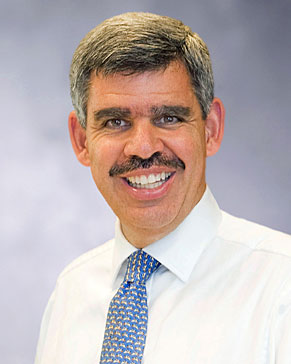How do the markets assess the Greek economy today?
Greece has made enormous, important and impressive progress in addressing several of its imbalances and getting its financial house in order. This is a necessary but not sufficient to restore the country’s economic vibrancy, create jobs and engender national prosperity. Accordingly, the challenge for Greece is to consolidate and supplement recent progress with efforts to reinvigorate traditional engines of growth, create new ones, and generate high and inclusive economic expansion. At the same time, further efforts are needed to deal with the remaining debt overhang.
Was the recent return to the markets the right decision or should Athens have waited?
Yes it was the right decision. Indeed, the timing was good as it enabled Greece to capitalize on its recent domestic financial progress while taking advantage of a particular benign phase in global capital markets where investors are stretching for yield. The key is for Greece not to get carried away. The country needs less, not more debt.
Is Greece's debt sustainable? Should there be a haircut, or would lowering of interest rates and lengthening the maturity be enough?
Greece’s stock of debt is not yet as sustainable. Further progress is needed in reducing the country’s stock of debt relative to GDP, improving its profile and lowering its cost. This is essential if Greece is to also be able to attract large long-term investment to help develop its domestic productive infrastructure.
How important is political stability in Greece or the lack of it?
Political stability, including a unity of vision and purpose among major political forces, is key if Greece is to successfully pivot to the next generations of reforms and sustain implementation.
Greek PM Samaras, notes an increased interest from international investors. Is that the case?
Yes, but interest is still far below what it can and should be given Greece’s potential.
How long would it take for the positive trend to be felt in the real economy?
This is an inherently difficult question to answer precisely. What we know for sure is that it takes time, and it’s a non-linear process. That is why it is so important to capitalize on recent progress, maintain the reform efforts, be transparent with citizens and work hard on getting broad-based buy-in from major segments of society.
What is your view of the eurozone? Is the crisis behind us?
Thanks primarily to bold actions by the ECB, the Eurozone has overcome the immediate threat of financial chaos and what was a clear and present danger of fragmentation, But it is yet to translate the financial gains into durable economic improvements that benefit many, particularly the most vulnerable segments of society such as the poor, the long-term unemployed and youth joblessness. And society is getting impatient judging from the protest voting patterns at the recent European parliamentary elections.
By Mohamed A. El-Erian, originally published in Kathimerini on 6/7/14. Reprinted with permission. The opinions expressed are those of the author.
